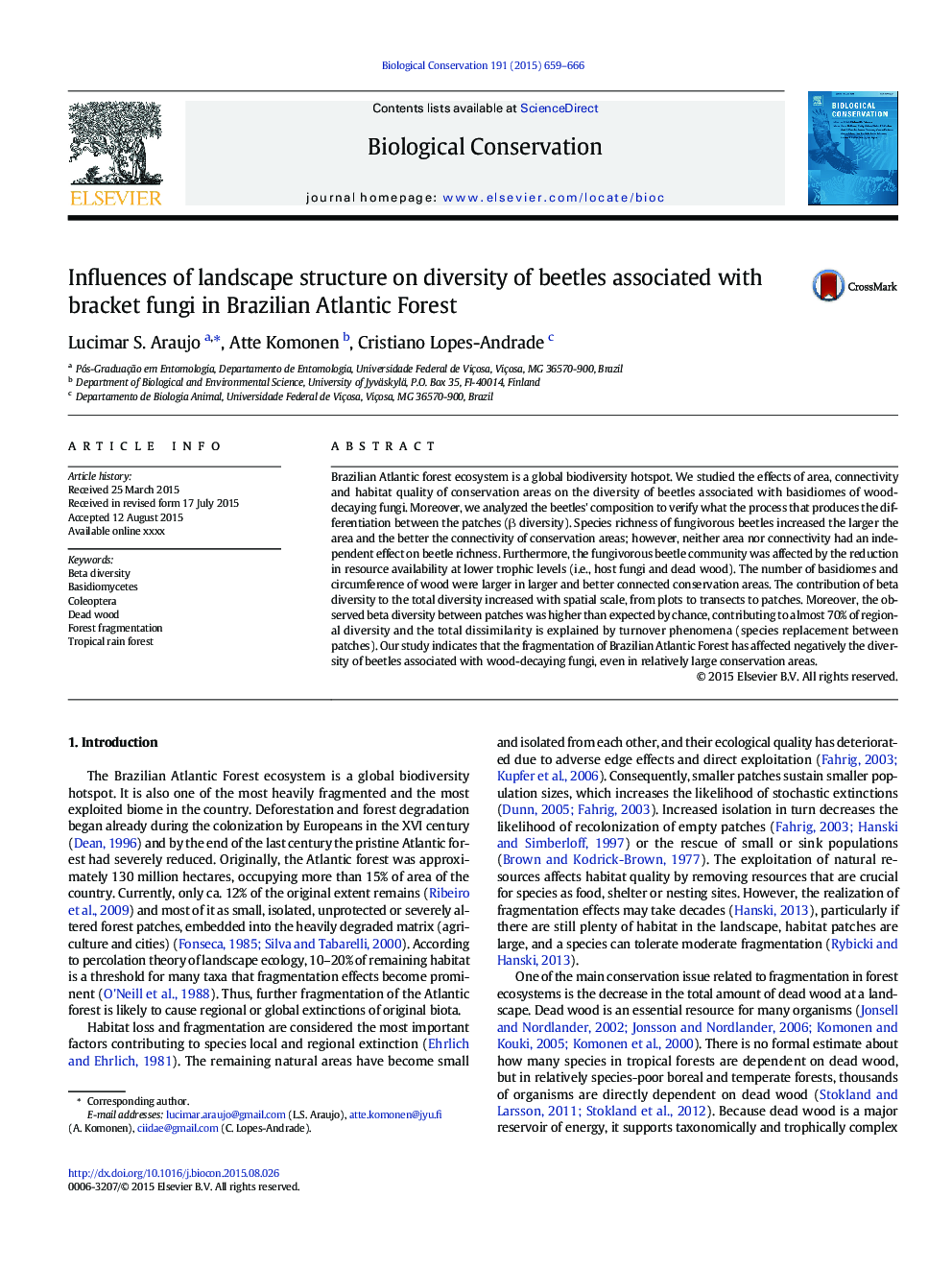| Article ID | Journal | Published Year | Pages | File Type |
|---|---|---|---|---|
| 6299067 | Biological Conservation | 2015 | 8 Pages |
Abstract
Brazilian Atlantic forest ecosystem is a global biodiversity hotspot. We studied the effects of area, connectivity and habitat quality of conservation areas on the diversity of beetles associated with basidiomes of wood-decaying fungi. Moreover, we analyzed the beetles' composition to verify what the process that produces the differentiation between the patches (β diversity). Species richness of fungivorous beetles increased the larger the area and the better the connectivity of conservation areas; however, neither area nor connectivity had an independent effect on beetle richness. Furthermore, the fungivorous beetle community was affected by the reduction in resource availability at lower trophic levels (i.e., host fungi and dead wood). The number of basidiomes and circumference of wood were larger in larger and better connected conservation areas. The contribution of beta diversity to the total diversity increased with spatial scale, from plots to transects to patches. Moreover, the observed beta diversity between patches was higher than expected by chance, contributing to almost 70% of regional diversity and the total dissimilarity is explained by turnover phenomena (species replacement between patches). Our study indicates that the fragmentation of Brazilian Atlantic Forest has affected negatively the diversity of beetles associated with wood-decaying fungi, even in relatively large conservation areas.
Related Topics
Life Sciences
Agricultural and Biological Sciences
Ecology, Evolution, Behavior and Systematics
Authors
Lucimar S. Araujo, Atte Komonen, Cristiano Lopes-Andrade,
